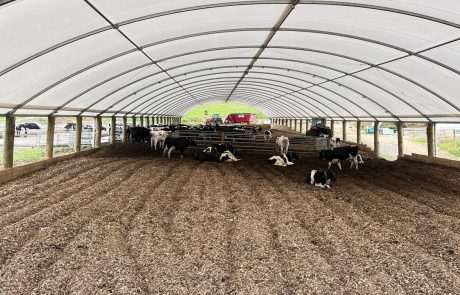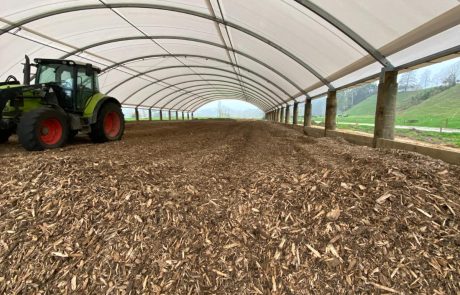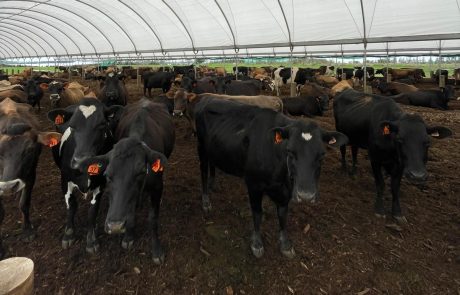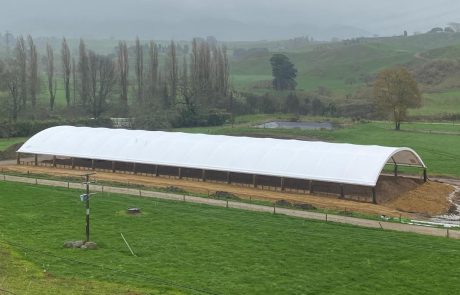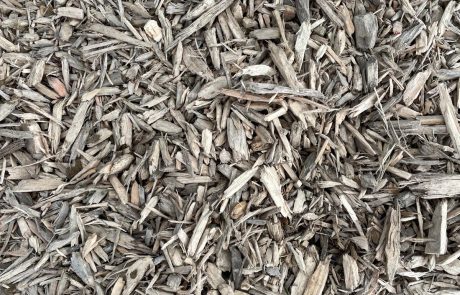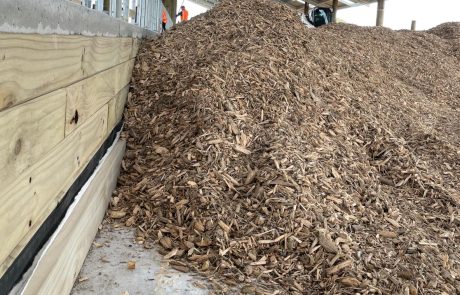Composting Barns – Comfort for Cows, Value for Farmers
Composting barns (sometimes called mootels) give cows a warm, dry place to rest, while bedding and effluent break down into compost that can be spread back onto paddocks. Farmers use them not only for comfort, but also as a practical space for:
- Diet control – managing feed intake more consistently
- Calving – a safer, sheltered place for cows to calve
- Stand-off – protecting pastures in wet or winter conditions
With the right bedding, cows are more comfortable, udders stay cleaner, and the barn becomes a healthy, efficient part of the farm system.
At Goodwood, we don’t build barns – we focus on what makes them work. The bedding. Our role is to supply the right woodchip blend to keep your composting barn running well, year after year.
Why farmers trust Goodwood woodchip in their composting barns
- Cow comfort – soft, dry bedding reduces stress and supports animal health
- Effluent management – absorbs moisture and promotes healthy composting
- Sustainability – used bedding becomes nutrient-rich compost for soil
- On-farm performance – farmers report gains in milk solids and herd wellbeing
- Versatility – doubles as a calving shed, stand-off pad, or feedlane space
- Proven practice – bedding can last 3–5 years with regular tilling and top-ups
Bedding blends that work for your farm
Every farm is different, and the bedding needs to match the way you’ll use the barn. That’s why we create custom blends using a mix of clean, untreated timber products.
Some of the materials we work with include:
- Kiln-dried chip for longevity
- Pine log chip for drainage and aeration
- Sustainable pallet chip for circular supply
It’s not about one product fitting all – it’s about blending the right mix for your cows, your system, and how you want the pack to perform.
Our woodchip is competitively priced, available year-round, and supplied in volumes to suit everything from a trial load to a full barn.
Practical know-how
How long does bedding last?
Typically 3–5 years, with regular tilling and top-ups.
How often should the pack be tilled?
Twice a day is best practice for compost activity, though once a day is common.
What temperature should the pack reach?
54–56°C is ideal – we recommend using a thermometer to monitor.
Why does it work?
- Heat reduces pathogens (helping lower mastitis risk)
- Aeration keeps bedding dry and active
- Dry matter above 50% limits bacterial growth
- Balancing carbon (woodchip) with nitrogen (manure) drives composting
Next steps
Every composting barn is different. We can share what’s worked for other farmers and help match a blend that suits your herd and system.

